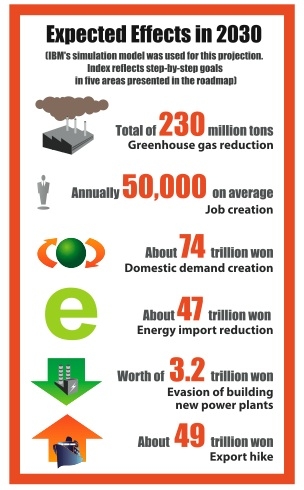The Bard CEP National Climate Seminar Fall 2011 series continued yesterday with a conversation with Sharon Nunes, Vice President of Smarter Cities Strategy & Solutions at IBM Corporation, entitled “Smarter Planet? IBM’s Climate Solutions.” Nunes elaborated on IBM’s projects with cities around the world to provide information technology and expertise to address critical environmental problems. The accessibility to time-sensitive information allows cities to plan better management of energy and water resources and realize savings from increasing efficiency. Initiatives such as these will be integral to the future sustainability of the planet as more and more of the world’s population moves to cities. According to the UN’s State of the World’s Cities 2010/2011, by 2050 over 70% of the world’s population will live in cities, up from 50.6% estimated for 2010. This will pose significant challenges to infrastructure, resource transportation and water availability. Access to information regarding the demand for resources in real time will be crucial to city managers to plan effectively and minimize waste.
Just this week, Newsweek released its Green Rankings for 2011, ranking the world’s 500 largest companies in terms of environmental footprints, reporting practices and initiatives. The environmental rankings list IBM in the #2 spot, the only American company in the top 10. Only 3 of the top 20 spots are held by U.S. companies. The principle behind IBM’s “Smarter Cities” program is to provide information technology to city managers to improve city operations and save money. By comparing water use and efficiency data between cities, decision makers can look for opportunities for improvement. The development of integrated transportation systems based on this information, allows for more efficient and organized transportation and better planning to reduce traffic jams that cost cities a significant amount of money. The availability of information technology on a relevant time scale allows decision makers to improve decision making and save time.

A potential technological advancement that would produce savings and increase energy efficiency for cities is the adoption smart grid technologies. The smart grid uses technology to predict and intelligently respond to energy demands and changes in supply with the goal of delivering reliable electricity as needed. A report commissioned by the U.S. DOE calculated that the potential energy savings from modernizing the current electricity grid and implementing a Smart Grid in the United States would be in the range of 46 to 117 billion dollars over the next 20 years. Benefits are realized through reducing supply during off hours, incorporating energy storage into the grid and integrating surplus power produced by solar panels and wind turbines on homes into the grid. The increases in efficiency and reliability of the smart grid has the potential to save consumers money and reduce wasted energy. One of the main obstacles to the development of a smart grid are technical issues related to seamlessly integrating renewable energy sources into the grid and the ability of utilities to implement smart grid technologies into their operations.
The development of social networks and open source data stored in clouds is facilitating the sharing of information between cities and consumers. These communications tools allow utilities and city managers to collaborate on pilot projects and communicate with the public to address inaccurate perceptions. Programs in which consumers can compare their energy use to average household energy use for their neighborhood has the potential to incentivize reductions in energy use. Although these programs may have privacy and security issues, data aggregation and network security issues can mitigate this risk. Innovations in information technology have the potential to overcome policy decision stalemates by providing information to show real potential benefits and savings from implementing efficient energy policies. Constituents need to let their political representatives know that these policies are important to them to ensure that the earth continues to be a sustainable place to live.
The next National Climate Seminar is scheduled for November 2nd with Richard Alley of Penn State University, for a discussion of “The Carbon Control Knob.” For more information on the National Climate Seminar please see the NCS website. Podcasts of the conversation with Sharon Nunes and of previous NCS conversations are available here. Know any undergraduates or recent graduates who aspire to be sustainability leaders in politics and business? Encourage them to apply to the C2C Fellows program.

